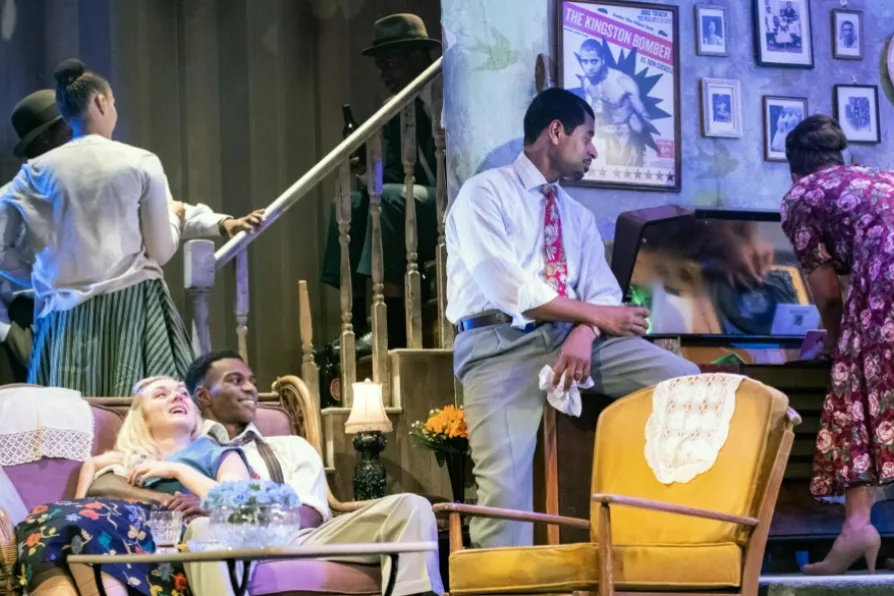RITA DI SANTO draws attention to a new film that features Ken Loach and Jeremy Corbyn, and their personal experience of media misrepresentation

 Shebeen at Nottingham Playhouse (L-R) Chloe Harris, Theo Solomon, Karl Collins and Martina Laird.jpg
Shebeen at Nottingham Playhouse (L-R) Chloe Harris, Theo Solomon, Karl Collins and Martina Laird.jpg
Shebeen
Theatre Royal Stratford East, London
IN HIS programme notes, writer Mufaro Makubika claims that Shebeen “was written in Nottingham for Nottingham” and, although you can understand his sentiment, it’s impossible not to read a wider significance into his debut play.
Set in the St Ann’s neighbourhood of the city in 1958 on the eve of the often overlooked riots and 10 years after the Empire Windrush docked at Tilbury, Pearl (Martina Laird) and her ex-boxer husband “the Kingston bomber” George (Karl Collins) are making a living by opening up their home as place of merriment for the community.
Unwelcome in traditional drinking establishments, such “shebeens” became what would now be referred to as safe spaces for the Caribbean community and some of their more open-minded neighbours.

PETER MASON is beguiled by a fascinating account of the importance of cricket to immigrants from the Caribbean to the UK












